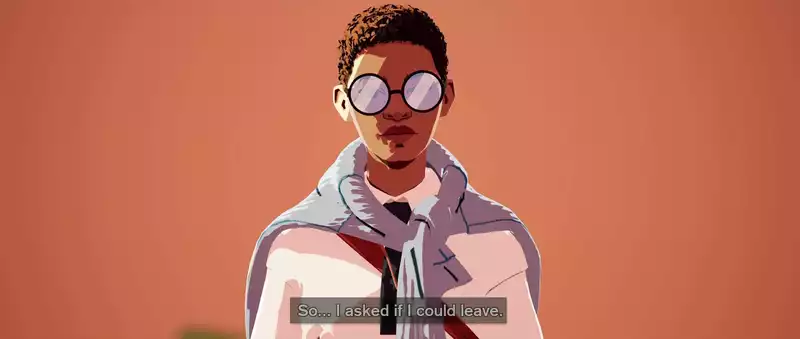There is nothing I love more than a game world that tells a story. At the start, Season: A Letter To The Future paints a fascinating, post-apocalyptic setting with a vast horizon, and the player is left to record what he or she finds there. However, the more I travel through Season, the narrower that horizon becomes, occupied instead by the story the narrator wants to tell, leaving no room for my own exploration.
The opening promise is a fascinating one: Season begins with a character in the future opening a diary. This unnamed protagonist grew up in an isolated mountain village and is about to embark on a journey to capture the world's current "season," or era, before the next season arrives. There is something comforting about this opening as he prepares to depart. The narrator's mother carries it through her voice acting with warmth and encouragement. Together they create a pendant filled with memories that will protect them on this journey.
Season is a game haunted by memories. The world is littered with remnants of the past and bears the hallmarks of post-apocalyptic fiction, yet people continue to live and thrive in this world. But you focus on deciphering the past, capturing cultures that have vanished or declined. Whether it is graffiti or a religious shrine, you seek to provide a thorough snapshot of the place and time. To do this, you need three primary tools: a camera, an audio recorder, and a journal. There are three main tools: a camera, an audio recorder, and a logbook. Using these, we will compile as much as we can about what we see.
The majority of the game takes place in a large valley, which can be explored freely on foot or with a small bicycle, visiting important points in turn. Each time you cross a hill or descend a slope, each time you catch a glimpse of smoke rising from a distant statue or a hidden cottage, your heart races with anticipation of what is to come. This is a game world for those who like to look around and get a sense of life from fictional places. In "The Witcher 3: Wild Hunt," you could spend hours just examining every nook and cranny of a village or pub, but "Season" caters to that desire and builds the entire experience around curiosity. Everywhere you visit, there is a handmade quality to it. Whether it is a country farm or an artist's junkyard, each place is filled with dozens of small props that give a sense of daily life.
However, all my attempts to connect with the world, to enter into an imaginary world, to take on a life of my own, were interrupted by a narrator who, frankly, just would not shut up.
The "Season" games rely on "less is more" (less is more); Shadow of the Colossus, Journey, and very recent games like Sable and Lake are invested in engaging scenery. Season" don't try to get me to speak my mind before the narrator speaks his or her own. As much as it wants to take me on a meditative journey, it never leaves enough room in the narrative for us to breathe.
The narrator comments on every object, every sight and sound, as if the season is afraid of what anyone might think if left to its own conclusions. A world built by many is wasted by one who refuses to be disturbed. I couldn't help but think of the allegations of sexual harassment and verbal abuse regarding Simon Darvault, the former creative director who remains at Scavengers Studios. A dark cloud over the entire game.
While there is nothing wrong with a lot of dialogue, "Season" is fairly one-note: unlike "Sable" and "Lake," "Season" is humorless, the dialogue is not playful in its exploration, and the endless chatter starts dragging. Its melancholy tone is powerful, but its lack of joy or warm respite makes "Season" feel like a parody of itself.
The kind of game (opens in new tab) that makes a mockery of the earnest sensibilities of walking simulators. It may not be pretentious, but it is excessive. Perhaps appropriate for a game about sheltered young travelers.
I liked to keep a very small journal that I maintained. I could choose what to put where, from photos and audio samples to sketches and knick-knacks I found along the way. I was particular about the layout and tried to be thorough without just cramming everything in. By the end of the game, I was very proud of the book I had put together, even though much of my exploration had lost its mystique. Even when a bug wiped out all my save data a few hours later (a problem that has since been resolved, at least), I painstakingly put together a second journal entry.
While its overbearing narrator took away the surprise and contemplation that the "season" clearly aims for, I still managed to find a few things of my own. I just wish the letter to the future had been something to write, not just something to carry around.
.

Comments